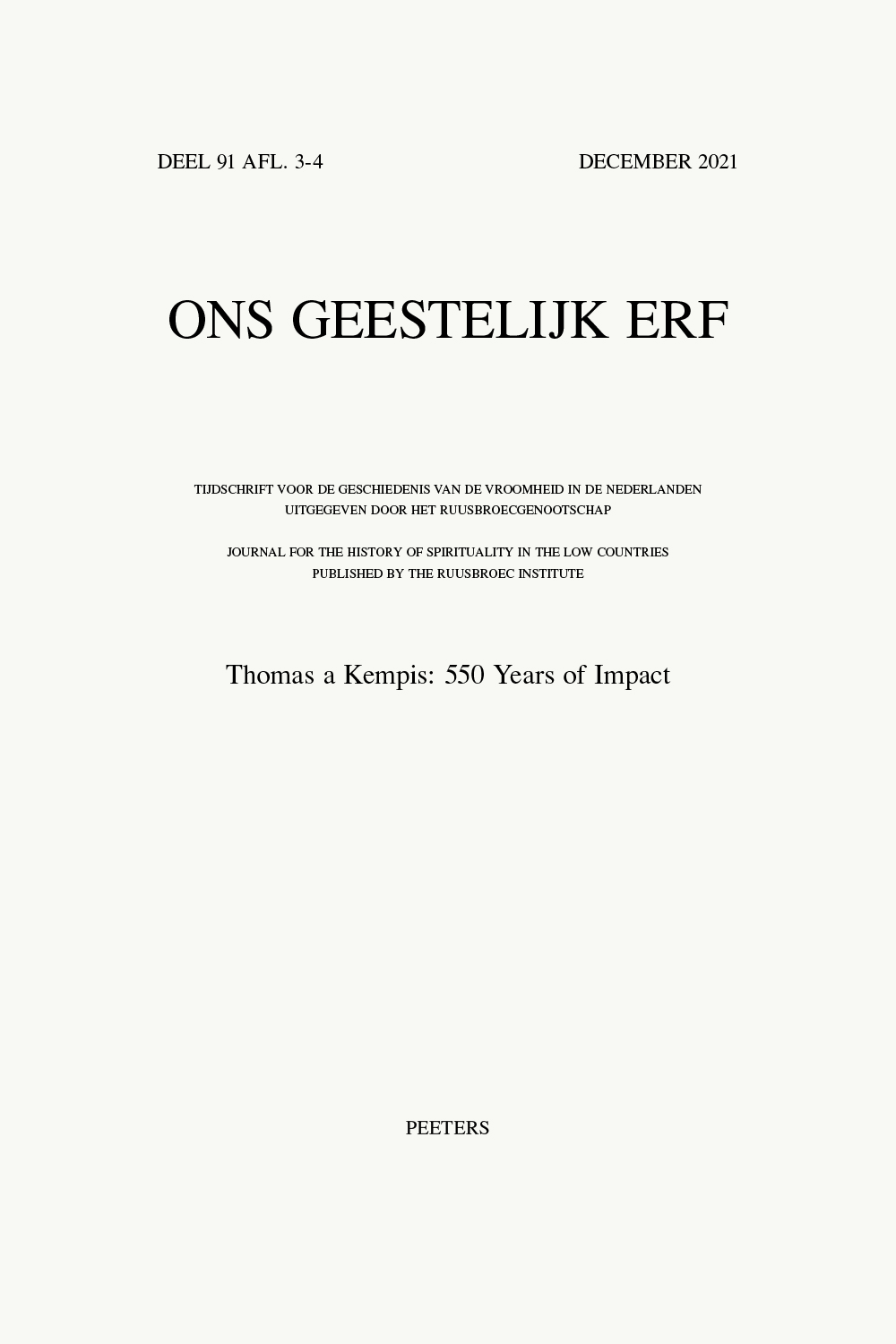 previous article in this issue previous article in this issue |

Preview first page |
Document Details : Title: Arnold Gheyloven over de twaalf vruchten van de Heilige Geest, de drie theologische en de vier kardinale deugden in zijn Gnotosolitos siue Speculum conscientiae (ed. Brussel, 1476), boek 1, rubrieken 9, 12 en 13 Author(s): WEILER, A.G. Journal: Ons Geestelijk Erf Volume: 81 Issue: 2-3 Date: Juni-September 2010 Pages: 243-309 DOI: 10.2143/OGE.81.2.2053917 Abstract : Arnold Gheyloven was born at Rotterdam in the last quarter of the fourteenth century, probably around 1375, as the son of a certain Theodericus of Rotterdam. He studied the artes liberales at Vienna. Around 1393 he went to Italy to learn canon law in Bologna under Gaspar Calderini († 1399). Gheyloven continued these studies at Padua with Franciscus de Zabarellis [Zabarella] (1360-1417) from 1401 until the end of 1403, obtaining the doctorate in canon law in October 1403. Before 1409 (or possibly by 1407) he entered the convent Groenendaal at Hoeilaart near Brussels, a monastery of the regular canons of St. Augustine. According to their obituarium, he died there on August 31, 1442. Some thirty works have been ascribed to Arnold Gheyloven. Only eight of these have been preserved in manuscripts, among which several autographs. His Gnotosolitos (sive Speculum conscientiae) is the only work that was ever printed, in 1476. This printed text was preceded by two earlier versions: the Gnotosolitos parvus and the Gnotosolitos magnus (both composed c. 1423, and preserved in manuscripts respectively at Liège and Cambrai/Berlin). The Gnotosolitos parvus was intended for students for the priesthood in a Louvain paedagogium, and at Deventer for clerics with the Brethren of the Common Life. This text was analysed in my book Het morele veld van de Moderne Devotie (Hilversum, 2006). The Latin text of the Liège manuscript was published by Brepols, Turnhout, Belgium, in the series Corpus Christianorum Continuatio Medieualis, nr. 212 (2008). – The Gnotosolitos magnus, intended for qualified confessors, was enlarged by Gheyloven, especially with regard to its second part which deals with excommunication etc. – The printed version of 1476 of the Gnotosolitos sive Speculum conscientiae is a still more elaborated version of the same rubrics: the seven deadly sins, the ten commandments, etc. In the present article, three rubrics are analyzed that had no place in the Gnotosolitos parvus, viz. Rubrica IX. De xii fructibus Spiritus sancti; Rubrica XII. De tribus theologicis virtutibus, and Rubrica XIII. De quatuor virtutibus cardinalibus. These rubrics give evidence of the theological foundations of the spirituality of the Modern Devotion. |
|


